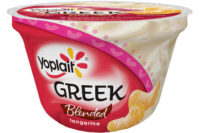
Snacks Ahead
by James Dudlicek
Breaded appetizers and other cheese-related treats
are the focus of Sargento’s Kiel, Wis., plant.
Sargento Foods Inc. is well
known for the slices, shreds and other retail cheese products that boldly
carry the company’s brand name.
But Sargento also plays a less visible yet crucial
role in making, for example, mozzarella sticks enjoyed by quick-casual
dining patrons nationwide, and many variations on the cracker-and-cheese
theme for portable snack packs.
These products, along with Sargento’s own new
shelf-stable Cheese Dips! snacks and shreds for foodservice, make up
the output of the company’s manufacturing facility in Kiel, Wis.,
built in 1993, about a half-hour’s drive north of the Plymouth
headquarters.
Here, the plant’s 325 employees work in three
departments — frozen appetizers, non-refrigerated snacks and shreds.
All three areas are kept separate from the others to conduct sanitation at
will without disrupting any of the lines, explains plant manager Mark
DeNoble.
The shipping and receiving department for raw
materials and finished goods operates around the clock, five days a week,
and can load or unload a truck in 45 minutes or less, DeNoble says.
All products made in Kiel are trucked to Plymouth for
final distribution, and all finished frozen goods are stored for one to two
days before shipment via Sargento’s frozen distribution system.
The Kiel plant is home to a variety of proprietary
processes, many of which are more closely guarded that Sargento’s own
lines back in Plymouth in order to protect the company’s numerous
high-profile, national clients.
For example, Sargento makes breaded appetizers for
various casual-dining restaurant chains. All contain cheese of some sort,
but each is specifically designed for each customer. Products include
breaded mozzarella in an assortment of shapes, including sticks, wedges and
stars; stuffed jalapeño peppers; and vanilla cheesecake cubes.
Cheese for a typical breaded snack line is usually cut
by the supplier, but shapes can be custom cut on site, DeNoble says. The
cheese shapes travel down a conveyor to be enrobed in breading before
they’re frozen and packaged. Breaded snacks are generally delivered
frozen and then fried or baked by the end user, DeNoble explains.
Non-refrigerated portable snacks made at Kiel, former
home of the MooTown Snackers line, include Sargento’s Cheese Dips, a
line of shelf-stable processed-cheese dips with packaged with various
crackers, chips and pretzels. Also made here are smaller snacks suitable
for lunchboxes and purses, including pretzels, breadsticks and cookies in
packs with cheese dips and confectionery creams. There’s also a
s’mores snack pack that features two small graham crackers, a mini
chocolate bar and a small plastic stick that the consumer uses to spread
the marshmallow cream that holds the tiny sandwich together.
Finally, Kiel’s shreds lines produce bulk bags
for foodservice and institutional use, along with portion-controlled packs
for pre-packaged salad kits.
Plant equipment is quite versatile. For example,
DeNoble says, a large-batch blender could be used to create a
“matrix” of cheese, vegetables and precooked meat; this blend
would then be shaped, breaded and frozen. Such a mixer churns out batches
encompassing thousands of pounds of mix that’s transferred to smaller
barrels for use on the plant floor.
Lee McCollum, vice president of manufacturing, notes
that processes at Kiel are highly automated. There’s an automatic box
erecting and gluing operation to make shipping containers. The breaded line
sports an automatic case sealer and palletizer, though the boxes themselves
are packed by hand.
A cooler holds both raw materials awaiting their turn
on the floor as well as finished goods headed to Plymouth for distribution.
The racks are designed to accommodate pallets and 640-pound cheese blocks.
At washdown time, operators clean their own machinery.
“You have a lot more ownership of what it takes to do the job,”
DeNoble says. “It has a tremendous impact on quality
control.”
Ergonomic improvements made at Kiel include a
prototype box-cutting machine designed to eliminate the seven human-made
cuts required to open a corrugated box of cheese; a waist-high conveyor
that eliminates the manual sliding of cheese blocks across a table; and a
tote dumper that renders obsolete the strenuous practice of dumping
30-pound boxes of ingredients.
$OMN_arttitle="Snacks Ahead";?>
